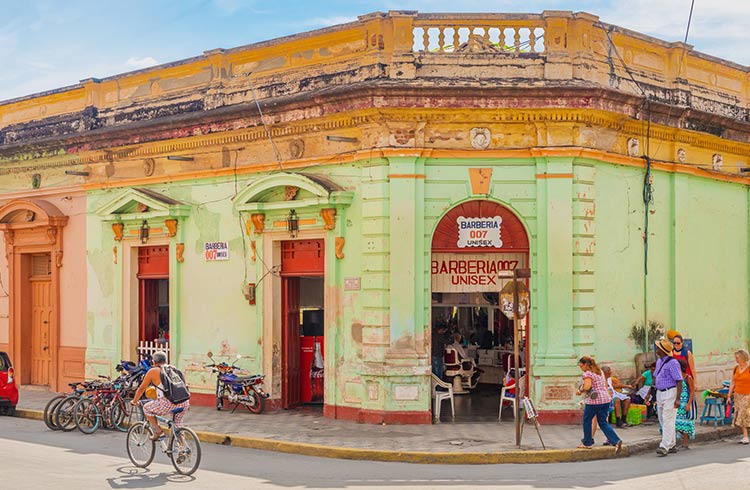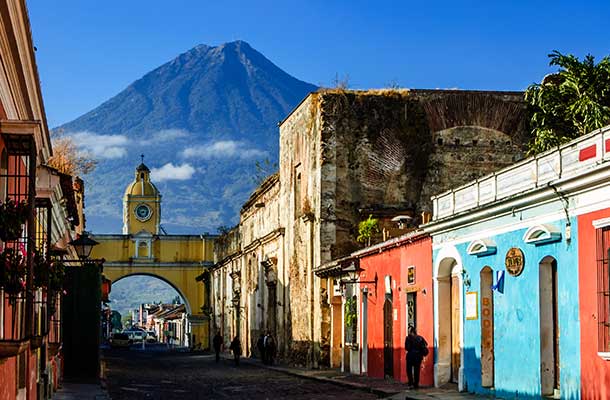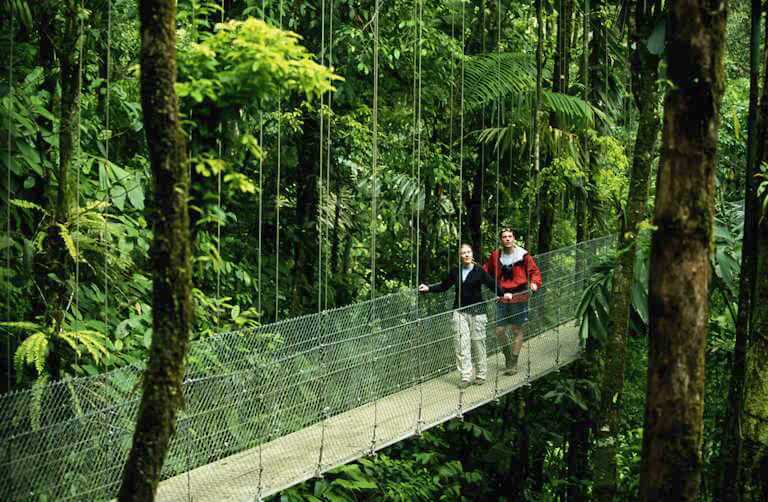Is it Safe to Travel to Nicaragua? 6 Things to Know
How bad is crime in Nicaragua? Our travel safety expert, Phil Sylvester, shares his tips on scams, express kidnappings and crime hot-spots to stay safe on your vacation.
 Photo © iStock/MarcPo
Photo © iStock/MarcPo
Express kidnappings are common in Latin America, and Nicaragua is no exception. But, is this a real threat to visitors? We take a look at just how safe Nicaragua is for travelers.
Before you begin planning your trip, check for the latest information from your government's travel advisory.
Mention Nicaragua and you may conjure images of violent coups, sneering guerillas, and cold-blooded drug henchmen. But, there's actually far less violent crime here compared to neighboring countries. Unfortunately, Nicaragua did record the largest deterioration in peacefulness in the 2019 Global Peace Index.
But, for most travelers it's possible to stay out of harm's way when you come prepared with insights on theft, scams, kidnappings, and the threat of assault. Here's everything you need to know to stay safe and out of trouble in Nicaragua.
- Crime in Nicaragua
- Street crime and theft
- Express kidnappings
- Common travel scams
- Tips for travelers taking a taxi
- Highway robberies
1. Crime hot spots in Nicaragua
Most crime occurs in the capital Managua, and typically in certain hot-spots. Pickpocketing is common at bus stations, on crowded buses, and in the markets – especially the Oriental, Huembes, and Mayoreo Markets. To avoid pickpockets, try to travel with minimal cash on you, and avoid taking expensive cameras out on the streets. Keep you phone hidden, and if you must use it, find somewhere quiet – this might help avoiding any unwanted attention.
In Managua, around the vicinity of the old cathedral is a well-known crime pit, and incidents against foreigners have occurred on Avenida Bolivar between the Plaza Inter Rotunda and the Military Hospital, the TICABUS terminal in Barrio Martha Quezada, and in the Altamira neighborhood.
Gang violence, including drive-by shootings, stabbings, and armed robberies are most frequent in poor areas, such as Rene Schick and Jorge Dimitrov. In the Zona Rosa district prostitutes have been known to rob passersby – so be careful in these areas. You should avoid walking alone at night in any of these areas.
2. Street crime and theft in Nicaragua
Although less than in the capital, street crime is also a problem in Puerto Cabezas, Bluefields, and the Corn Islands.
San Juan del Sur, a major tourist destination, has a perennial theft problem – but it's getting better.
In remote areas, especially the North Caribbean Autonomous Region (RACN or RACCN) and the Atlantic Coast, police presence in sparse. Criminals, especially drug traffickers, occasionally use this to their advantage.
If you are threatened by an armed criminal, don't resist – hand over what they're asking for. Too many injuries and deaths have resulted from non-compliance.
As a last word of precaution: avoid hitchhiking in Nicaragua, don't go home with strangers after a night at the club, and always travel in a group whenever possible.
3. Express kidnappings in Nicaragua
Taxi kidnappings have occurred in Nicaragua with worrisome frequency. These tend to be committed by gangsters who are driving stolen cars. You'll have to do some extra work to ensure your taxi is legit, but here are a few pointers to help out:
- When possible, order a radio cab at the airport or at your hostel/hotel
- Make sure the taxi has a red border around the licence plate, and that the number is clearly displayed
- Note the driver's name and registration number
- Make sure it's labeled with the company name (usually includes "Cooperativa") and a logo.
In a few cases, tourists were approached by a friendly-looking traveler who offered to share a cab. Once inside, the tourists were robbed at knifepoint, threatened, or driven around to ATMs to make cash withdrawals. If that wasn't enough, the assailants left them broke and alone in remote locations.
These awful swindles took place around the international airport and in the cities of Rivas, Granada, and Masaya. Be very careful when accepting a ride from a stranger.
4. Scams in Nicaragua
If something sounds like it's too good to be true, it probably is. That's the best approach to avoiding any con artists while traveling anywhere around the world. But, there are a few scams to be on the lookout for while traveling around Nicaragua.
- Women approaching tourists on the street asking to buy their "sick child" medicine – politely decline
- Say no to any unsolicited requests on the street for money to help support locals in any way (such as moving back to their home town, supporting their family in need)
- Watch out for dodgy tour operators – read reviews online to make sure the tour operator is reliable
- Iif someone asks to see your passport or identity document, request they show their police identification before handing anything over
- Be careful when renting ATVs or motorbikes – read the documentation before signing on the dotted line, and make sure you meet any requirements to avoid being ripped off or having to pay a hidden fee.
5. Tips for travelers taking a taxi
- Tell the driver not to pick up other passengers
- Agree on the fare before setting off
- Carry small bills to pay – taxi drivers rarely have change
- Keep windows and doors closed, and hide valuables to prevent snatching at stop lights. It's a rare occurrence, but it has happened.
Although the chances of a traveler being kidnapped is very rare, there have been attacks on foreign nationals in their homes or hotels. If peace of mind is important to you, choose accommodation with uniformed security staff, a good fence, and a secure front gate.
6. Highway robberies in Nicaragua
When it comes to driving around Nicaragua, traveling outside the city carries a few risks. There have been armed robberies along some highways, notably the Tipitapa-Masaya and the Managua-Leon. Some cases have reported criminals dressed as cops, pulling over passenger cars for inspection. There are corrupt police that may solicit drivers for bribes, so do your best to assess the situation and avoid handing over bribes – which encourages future behavior.
The Motombo Mirador lookout point, along the New Leon Highway, has been the scene of a few armed robberies against tourists as well.
Related articles
Simple and flexible travel insurance
You can buy at home or while traveling, and claim online from anywhere in the world. With 150+ adventure activities covered and 24/7 emergency assistance.
Get a quote


No Comments